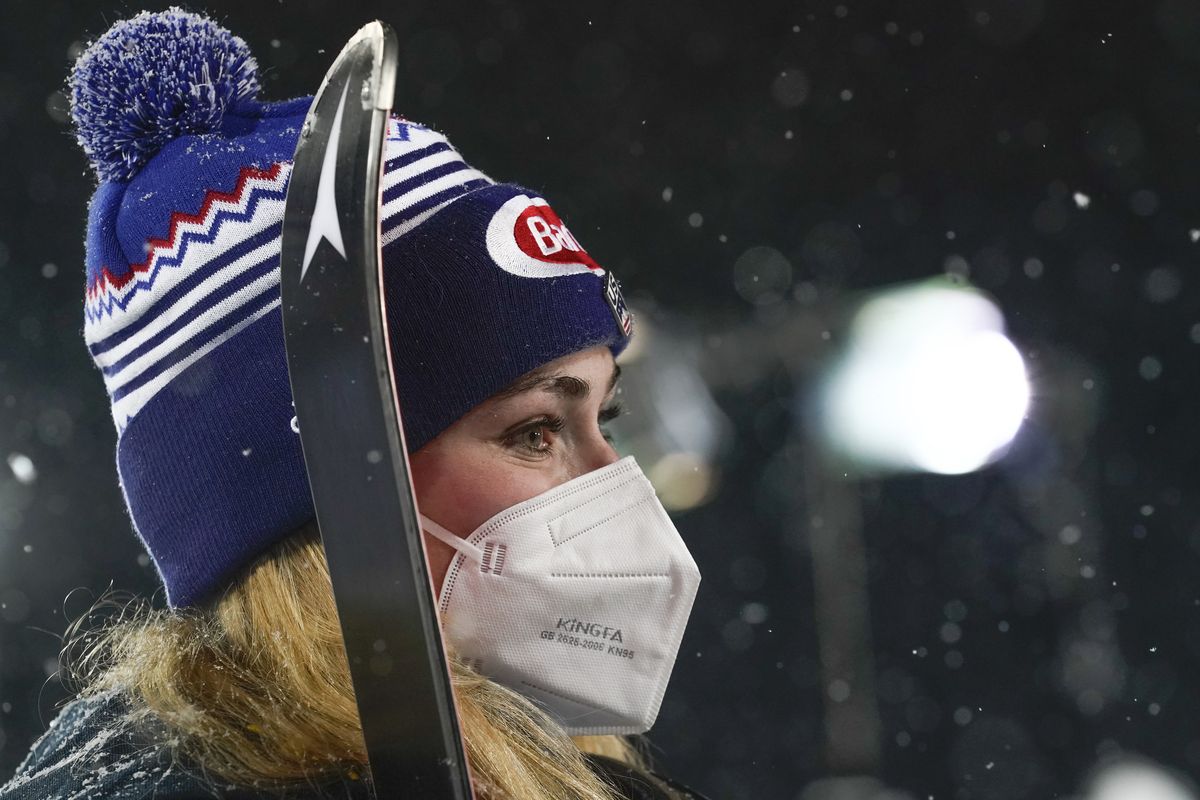In tragic year, Mikaela Shiffrin’s coaches became ‘mentors in life’

A personal tragedy. The global pandemic. Then a back injury to top it all off.
Mikaela Shiffrin had to deal with a surprising number of setbacks in 2020. But if there’s a silver lining, those setbacks also created a new bond between the 25-year-old skiing great and her coaching team – a bond that has her back as one of the favorites at next week’s world championships in Italy.
“We’ve become almost like family,” Shiffrin said a few days before the start of the worlds. “With the last year that I have experienced, I have been even more grateful for their support, not only as coaches in my professional career, but also almost like mentors in life.”
For a two-time Olympic champion expected to win virtually every time she steps into the starting gate, and an athlete whose nearly every move is documented in the public spotlight, 10 months away from racing meant a complete reset.
“That’s a really long time in sports,” Shiffrin’s head coach, Mike Day, told The Associated Press. “People have looked at this as a period of time off. But realistically it’s like an injury. She went through something that hurt really badly and the timeline for return is something that is extremely personal.”
Shiffrin’s season was upended a year ago when her father, Jeff Shiffrin, died following an accident at the family’s home in Edwards, Colorado.
The outbreak of the coronavirus in Europe canceled the World Cup season in mid-March just when Shiffrin was attempting a comeback at races in Sweden, and the pandemic vastly limited her opportunities for training during the summer.
Plus, a tweaked back forced Shiffrin to sit out the season opener in October, delaying her comeback by five more weeks.
For a racer who thrives on training volume, the break was detrimental to Shiffrin.
“If you drastically alter the volume of training that she’s getting from one year to the next, that’s going to affect her,” said Jeff Lackie, Shiffrin’s strength and conditioning coach.
Making matters even more complicated was that Lackie got stuck in his native Canada during the offseason because of the pandemic.
“That was challenging,” Lackie said. “Definitely had to get creative to coach remotely, and that’s never easy. Doesn’t replace being there in person.”
That Shiffrin has returned to racing and has been performing consistently entering the world championships in Cortina d’Ampezzo is a testament not only to her own will and mental strength but also the influence of her coaches.
Day, who is in his fifth year with Shiffrin, and Lackie, who is in his sixth, have to tread lightly with an athlete who felt that her life got derailed.
“There is obviously a certain amount of sensitivity that goes into how you handle each day,” Day said. “There is waves of grief and you don’t really know when these waves are going to come. Emotionally and from a caring standpoint, we have to approach it a little differently.”
For Lackie, it all comes down to empathy.
“I can sympathize with what she’s going through. I lost my father when I was younger and it’s challenging,” Lackie said. “Sometimes what I am telling her is not what she wants to hear. But I am always quick to remind her that I am trying to help. If I don’t say something that I see her doing that’s not to the level I know she’s capable of then I wouldn’t be doing my job.”
Avoiding conflicts or lowering expectations would be counterproductive.
“Over time it’s easy to fall into a state of complacency where you’re no longer challenging and you’re trying to avoid conflict. Do I not tell her something because I don’t want to hurt her feelings? Is that justified?” Lackie said.
“She is incredibly resilient, despite everything that’s happened. As a coach your No. 1 job is to believe in your athlete and in your athlete’s abilities to succeed and perform. Mikaela makes that aspect of my job very easy. What she has overcome in the last year has been incredible, a testament to her strength.”
Even before the tragedy, Day and Lackie had the delicate job of balancing their duties while also working with Shiffrin’s mother, who is also one of her coaches.
Shiffrin revealed before the season she wouldn’t have returned to the World Cup if her mom, Eileen, had decided against traveling the circuit throughout Europe with her.
“It’s an all-or-nothing situation between the two of them,” Lackie said. “They always were incredibly close.
“It’s funny, I see other people look like they don’t understand that connection, that bond,” Lackie added. “I have a really close relationship with my mom as well and it’s definitely something I’m grateful for. It’s such a powerful tool, to be able to have that unconditional love and support with you all the time. It’s such a huge advantage for her.”
After being separated for so long last year, the tight-knit Shiffrin team has drawn closer together since they reunited.
“They’ve been incredibly patient with me through ups and downs of the last year, sticking with me, finding all of the positives and being enthusiastic on the good days and still keeping my spirits high on the tough days,” Shiffrin said.
“I know it’s not easy for them. But they’ve been really sticking together and sticking with me and trying to sort of pull me up by my bootstraps and help me to get back to a really high level of skiing.”